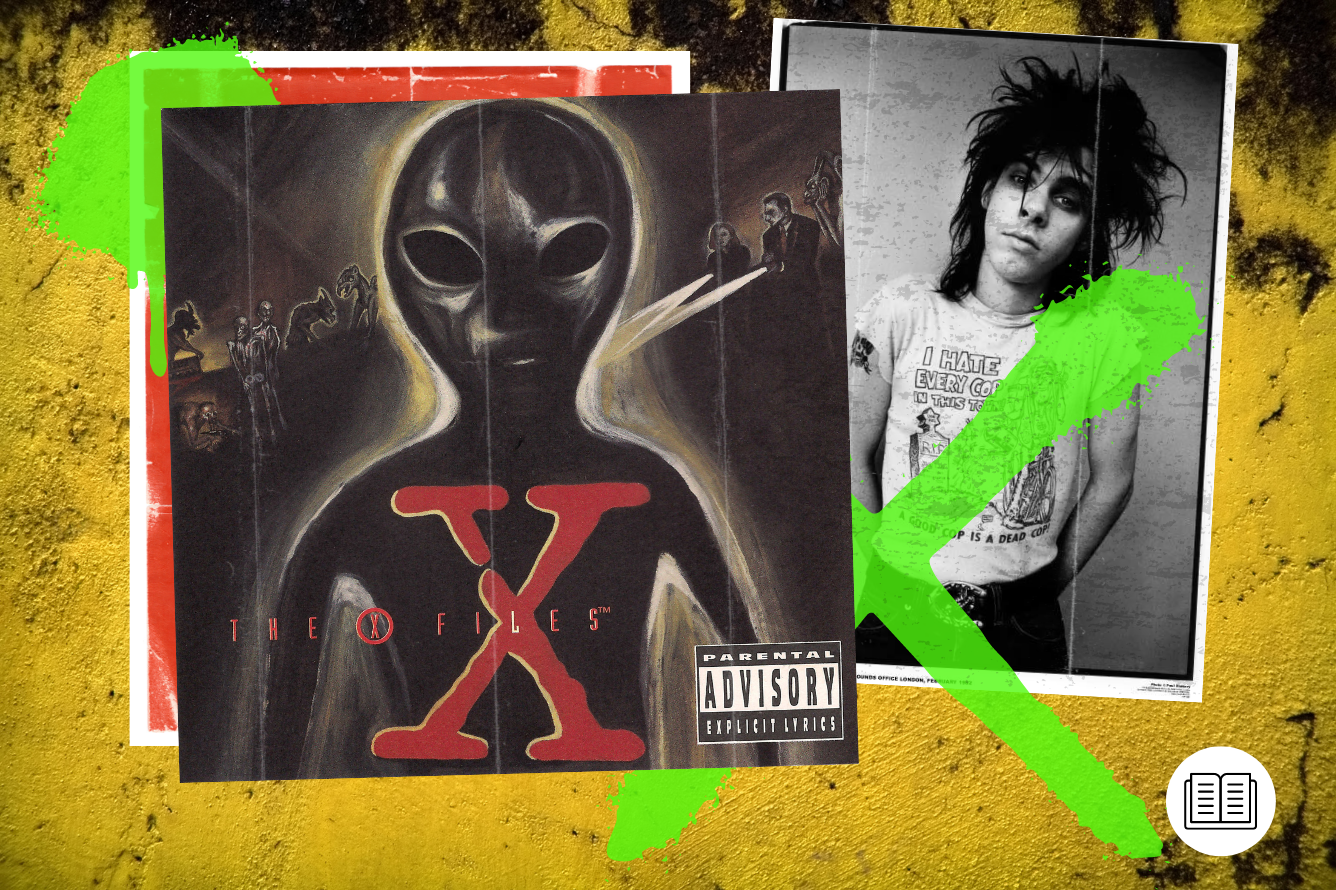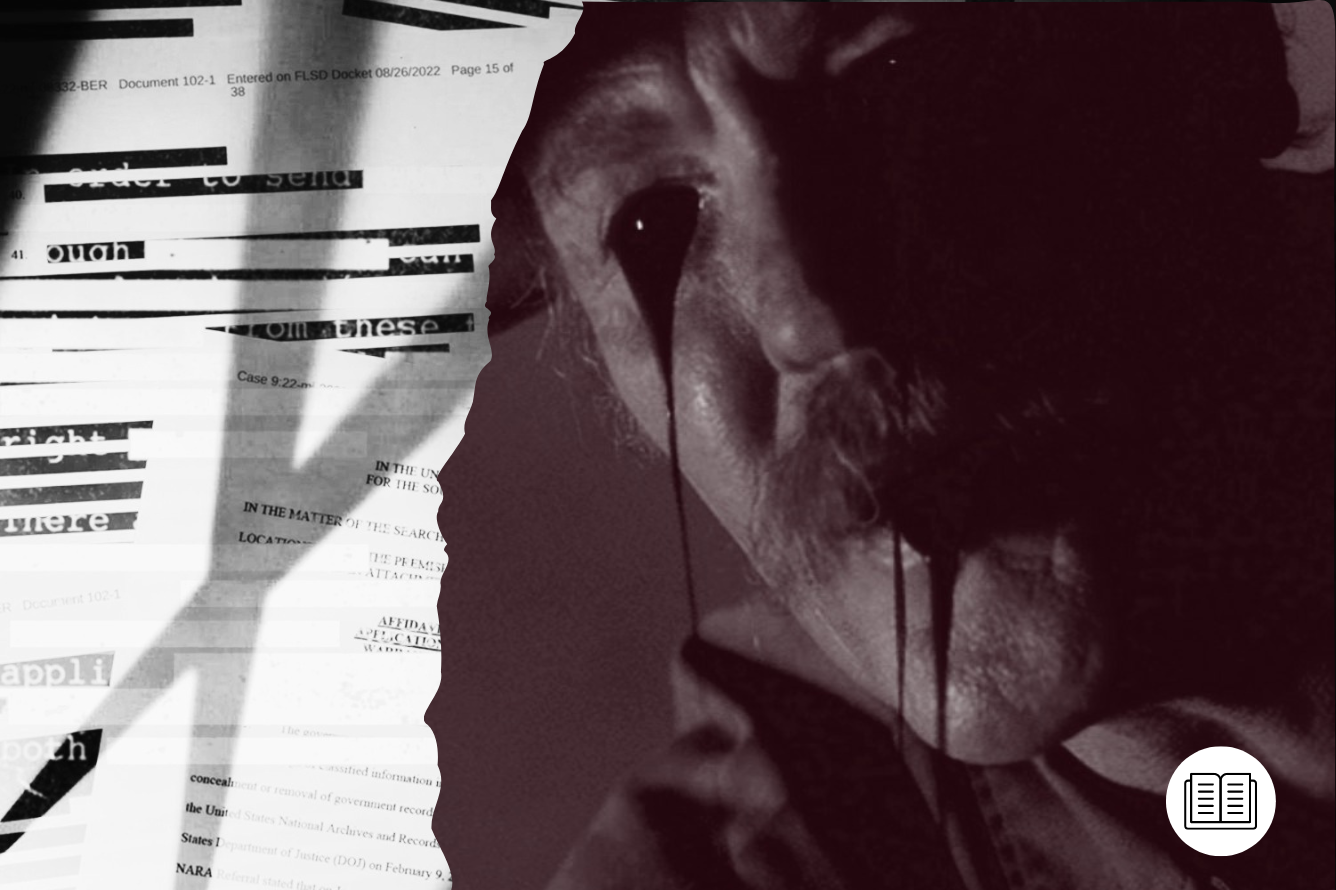Although The X-Files was not born in an age of rampant conservationism, it is a series built on the terror of man’s natural destruction of our world.
The cultural anxiety of societal collapse is a major throughline across the history of the show, exemplified chiefly by an alien ‘mythology’ that revolved around the looming destruction of mankind, but Chris Carter’s series is not just about an apocalypse from the heavens. Episodes such as ‘Shapes’ (The X-Files – S1, Ep9) or the ‘Anasazi trilogy’ (‘Anasazi’ – S2, Ep25, ‘The Blessing Way’ – S3, Ep1, and ‘Paper Clip’ – S3, Ep2) explore the pillage of Native American tribal land and culture by the privileged white man.

The power of nature, in how it fights back in the form of the ‘monster’, the environment, or the incanted vengeance of history, is a common recurring theme. America – society – is frequently an enemy that the paranormal forces Fox Mulder (David Duchovny) and Dana Scully (Gillian Anderson) investigate are summoned to defend against.
This becomes clear in an early episode of The X-Files, ‘Darkness Falls’ (S1, Ep20), which in some senses feels like an extension of ‘Ice’ (S1, Ep8), earlier in the first season, whereby Mulder and Scully almost fell afoul of a mysterious (possibly alien) parasitic organism in the Arctic that would invoke violent behavior in the humans it possessed.
‘Darkness Falls’ replicates that same level of paranoia, moving the action from the ice into the deepest of American forests in Washington state, but concentrates on the environmental impact. The awakened parasitic organisms in cut-down trees, who begin attacking, mummifying, and ossifying humans in the forest once daylight or unnatural light disappears, are merely a response to man’s destruction of natural habitat.

Thirty loggers go missing, as do the Forest Service’s investigators sent in to find them, at which point it lands at the door of the FBI and the X-Files, but Mulder explains they were ‘clear-cutting’. This is a practice designed to uniformly clear a forested area of trees which is praised by certain logging companies and forest unions for securing the safety of an ecological environment but demonized equally by protestors and detractors who believe it destroys natural habitats and contributes to climate change.
Hence why the FBI first believe the disappearances to be the work of two eco-terrorists, Doug Spinney (Bosch star Titus Welliver), and Steven Teague, who Mulder describes as calling themselves “monkey wrenchers.” The guys who drive spikes into trees, sabotage logging equipment, and otherwise make life miserable for lumberjacks and lumbermills.”
Ecoterrorism and The X-Files
Ecoterrorism, a term first coined in the 1960s, by the early-mid 1990s had entered the public lexicon following growing concerns about ecological catastrophe since the mid-1970s, a febrile time of anti-authoritarian sentiment following the Vietnam War and indeed Watergate, which we discussed as a formative moment for Carter in a previous article, and one on Carter’s mind when writing the ending of the episode.
Writing in Buzzfeed, critic Allison Willmore has described eco-activists as neither heroes nor villains, as often portrayed in cinema and television since the term was coined, but rather:
“They are, instead, people grappling with the conviction that they are standing in the middle of a room, screaming about how the building is on fire, while everyone else goes about their business by weaving around the flames. These are not narratives for the world we used to live in, in which a crisis will be narrowly averted and the day saved. Allison Willmore writes in ‘Climate Change Fiction Is Rethinking The Ecoterrorist’ (Buzzfeed):
“They’re narratives for a reality in which climate change has already started to disrupt the way we live, and in which acceptance of and anxiety about climate change has reached record highs. They’re narratives for a reality in which we may have already gone past the point of no return.”

Humphreys (Tom O’Rourke), head of security for the logging company who joins Mulder and Scully’s team to find the missing loggers, actively voices a conservative viewpoint about Spinney and Teague in direct opposition to their activism. “See, these tree-huggers comes from the same kind of boys that went up to Canada during the Vietnam war. They’re cowardly and so are their tactics.” Drawing a line between protection of the environment and a lack of patriotism was, and remains, a key bulwark of anti-environmental sentiment.
Humphreys even suggests that only the remoteness of their location would not warrant more of an active political solution to the kind of actions Mulder earlier describes, which Humphreys labels as “indiscriminate terrorism. Can you imagine somebody putting these down or spiking the roads of Washington, DC? I’d like to see how much sympathy they get then.” Scully openly wonders if they’ve stumbled into a “war”, and this is how Carter frames the debate around which the mystery is established – acts of protective ecoterrorism to protect the environment against the powerful, established conservative logging firms who consider them dangerous pests. The strong suggestion is that the public is increasingly favoring David over Goliath in this scenario.

Carter, too, even if he questions their methods, seems to have sympathy for Spinney and his cause, given how Humphreys and his company are quickly outed as conducting illegal activity. “Your logging crew has taken trees that nobody has the right to, trees that are marked and protected so don’t talk to me about breaking the law!” Although Humphreys does counter that protestors sometimes mark trees with their own paint, as the Forest Service does, to prevent loggers from cutting them down, this allows Carter to frame the debate less about equivalence between logging companies and violent protestors, and more about the corruption and conspiracy inherent in the former. These companies are not just destroying the natural environment, but they are lying and trying to hide the evidence, which in the world of The X-Files tracks with the series’ continuing themes about subterfuge against the American people.
Dendrochronology in ‘Darkness Falls’
History, natural history, is a key component to Carter’s work on The X-Files, and in ‘Darkness Falls’ he was keen to explore the idea of ‘dendrochronology’, something he had come across in college; an area of research that analyses annual growth rings in non-tropical tree species. As he stated on The X-Files: Season 1 DVD (2000) special feature, ‘Chris Carter Speaks about Season One Episodes: Darkness Falls’:
“I always wondered, ‘If a tree is thousands of years old, why couldn’t it be a time capsule for something that had existed that far back?”
In this case, the insects that are released by deforestation reflect centuries of knowledge and awareness. In cutting down trees that are 600 or 700 years old, the loggers are indeed severing connection to the secrets of the natural world and moreover the history and current of climate change. Mulder posits the idea of an event that unleashed “some kind of… extinct insect larvae in that ring, deposited during a period of volcanic activity, brought up through the tree’s root system. Ancient insect eggs. Thousands, maybe millions of years old lying dormant until…” Spinney finishes his sentence: until the loggers cut the tree down, a tree marked that they were never supposed to sever.
Ignorance of the natural environment and hubris hastens the downfall of loggers who are seeking capitalist gain from deforestation, with zero consideration of the cost. Scully earlier on posits that Mulder, as he is wont to do, might believe that Bigfoot could be responsible for these disappearances, but the truth is much less monstrous and glamorous. The larvae, the insects, do not have sinister intelligence in how they attack and kill those in the forest after dark when they emerge – they are not monsters. They are a natural, ancient response to being disturbed, driven from their place in the ecosystem.
To Spinney though, it is perhaps divine retribution in how he describes that “they come from the sky, take a man right off his feet and devour him alive.” Darkness does not just fall but so does death, in very different means from fears of alien abduction or disappearances at the hand of a cosmic force.

Writing on The M0vie Blog, Darren Mooney finds within the episode a deeper recurring theme central to the back half of the first season of the show:
“There’s a sense of America as a haunted and ethereal realm, and a sense that the European settlers are still newcomers who don’t know the land half as well as they think they do … ‘Darkness Falls’ focuses on the American wilderness itself … The American wilderness has an almost mythic quality. Home to all manner of tall tales and folk heroes, the landscape has become a part of the historical tradition of the United States of America.
“Part of that tradition includes a desire to portray the countryside as an untouched paradise, as if it were a promised land awaiting the arrival of the European settlers to “tame” it, forging character and helping fashion cultural identity. This belief is so widespread that it even has a name, “the pristine myth.”
“Never mind that this myth would seem to have little basis in historical fact and that the Native American people had done a lot of work managing the land before Columbus even dreamed of setting sail for India. It’s a good story, so tell it. After all, it’s a much nicer story to tell our children and a version of history that manages to downplay the damage done to Native American culture by downplaying the significance of that culture.”
‘Darkness Falls’s Chilling Conclusion
If the myth of that wilderness underlines the political action undertaken across its land, Carter, as if to underscore his point about who he values in the ‘war’ between environmental action and deforestation companies, ensures that Humphreys in his ignorance and hubris is devoured by the insects while Spinney, who the local sheriff, Moore (Jason Beghe), along for the ride, remains convinced will betray them given how he had previously shot at the man’s car, does, in the end, return to save Mulder and Scully after using the last of the gas to go and radio for help. He too ends up devoured, perhaps as punishment for his own crimes that have hurt communities and maybe even cost lives inadvertently, but he is redeemed for his actions. Carter wants to believe in him.
Though strikingly, he allows the insects to swarm and cocoon Mulder and Scully. There are few episodes across the entire series in which they come closer to death. Yet they both survive this natural response to the insects’ disturbed environment, covered in acidic burns and treated inside a high-containment facility festooned by the kind of quarantine-suited government figures the series so frequently treats with suspicion. This sequence Carter claimed was heavily influenced by his interest in Watergate, in government conspiracy and secret action, and likely serves as crucial to his eventual evolution of the core ‘mytharc’ narrative which, this early in the series’ run, remained nascent.

Mulder learns the extent of their burns but is more concerned about how the insects will be contained, that the swarm could migrate. He is told by the unnamed man in quarantine: “The government has initiated eradication procedures. They’re quite certain that by using a combination of controlled burns and pesticides, they will be successful.”
Mulder: “And if they’re not?”
Government agent: “That is not an option, Mr. Mulder.”
It is among the more chilling endings of an episode of The X-Files, even more so than ‘Ice’s similar burial of the parasite deep in the Arctic core, as it leaves open the question as to whether the American government’s vast machine is even capable of stopping something so old, so unknowable, that it is practically alien.
Zach Handlen discusses the moment in similar terms for AV Club:
“Here it’s not so much an intentional cover-up as it is a basic assumption by the powers that be that they can fix any situation before it gets out of hand. It’s a bleak parody of Mulder’s own faith–the shadowy forces he struggles against cling to control by simply ignoring the possibility that any other option exists.”
‘Darkness Falls’ suggests that faith, nor political action against or for the protection of the natural world, can possibly stand up to the might and power of nature itself. The X-Files across 11 seasons has repeatedly utilized monstrous aberrations, Bigfoots or mutants, or demonic representations, to reflect America’s darkest secrets or pick at the nation’s open wounds, but the insects in this episode are nothing less than a force of nature. Only by rethinking our own rape and pillage of the natural landscape are we likely to avoid being consumed by what such devastation might unleash.
“Darkness is our enemy,” Spinney declares at one point. So too is our own ignorance of nature’s power.
This article was first published on May 20th, 2022, on the original Companion website.
The cost of your membership has allowed us to mentor new writers and allowed us to reflect the diversity of voices within fandom. None of this is possible without you. Thank you. 🙂









